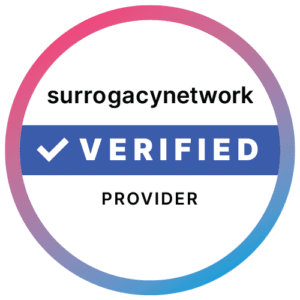In honor of Honolulu Pride month, we are going to debunk the top 6 myths when it comes to same-sex surrogacy and parenting.
Myth #1: Adoption is the only way for same-sex couples to become parents.
False! While adoption is an amazing option for LGBT couples, same-sex surrogacy is another viable option. With surrogacy, same-sex couples may also have the chance to be biologically related to their child.
Myth #2: A Gestational Carrier is related to the child she carries.
False! As we know from our last blog post, gestational carriers have no biological relation to the child they carry. With same-sex couples, one of the intended parents can use their egg or sperm, and then use either an egg or sperm donor to create an embryo through IVF. Once the embryo is created, it is then transferred to the gestational carrier.
Myth #3: There are different laws regarding surrogacy with same-sex intended parents and heterosexual intended parents.
True and False. Depending on what country or state you live in, there can be different laws regarding surrogacy. In the state of Hawaii, there are no specific laws that differentiate between same-sex couples and heterosexual couples as it relates to surrogacy. It is important to consult with a surrogacy attorney in your state to determine what needs to be done to protect your rights and establish parentage of any child born via gestational carrier.
Make sure that your agency works with legal professionals that are experts in family law and assisted reproductive technology. If you reside outside of the United States, ask your agency for referrals to home country attorneys that can help you navigate the immigration requirements for a child born via gestational surrogacy.
Myth #4: Surrogates don’t want to carry a baby for same-sex parents.
Mostly false. While there are surrogates who might balk at the idea of carrying a child for a same-sex couple, they are very much in the minority. Their reasons usually center on religious issues.
The reality is most surrogates simply want to be of service to others. They want the opportunity to provide the gift of parenthood to people who they feel are deserving parents. Very seldom do the intended parents’ relationship and lifestyle get any meaningful consideration.
Myth #5: Both same-sex parents may be genetically related to the child.
False. Only one of the same-sex parents could possibly have a genetic connection to the baby. How do we know that for sure?
A baby is the product of a conception that involves one egg cell and one sperm cell. If the same-sex couple is female, only one of their egg cells can be used. If both partners are males, only one of them will contribute a sperm cell. This is biology and there is no way around it.
It is worth noting that neither parent could have a genetic connection to the baby. That would be the case if the surrogate or a donor provided the the egg cell and another donor provided the sperm cell.
Myth #6: A child needs a mother and a father.
False! The biggest argument that same-sex surrogacy opponents make about the process is that each child needs a mother and a father.
What a child really needs is at least one parent that is willing to love and guide them from the cradle into adulthood. If there are two loving parents willing to fill that role, that’s a wonderful thing. There is little evidence that would suggest that a child can’t grow up with a healthy mind and body if both of their parents are of the same sex.
Remember, children a very adaptable, and all they need in the end is a happy household in which they can grow and flourish.
At Hawaii Surrogacy Center, we believe in inclusion for all. Everyone should have the chance to build a family. To help someone from the LGBTQ community become a parent, consider being a surrogate: https://hawaiisurrogacy.com/surrogates. For more information about becoming a parent, visit https://hawaiisurrogacy.com/intended-parents.





